
Mitigating Researcherasinstrument Effects Research Design Review
The qualitative researcher's role as instrument continues even in data analysis. The researcher plays at least five roles in data analysis. There may be more but these five, proposed by Merriam and Tisdell [ 4] can be a good start. The paragraphs that follow discuss each of the five roles.
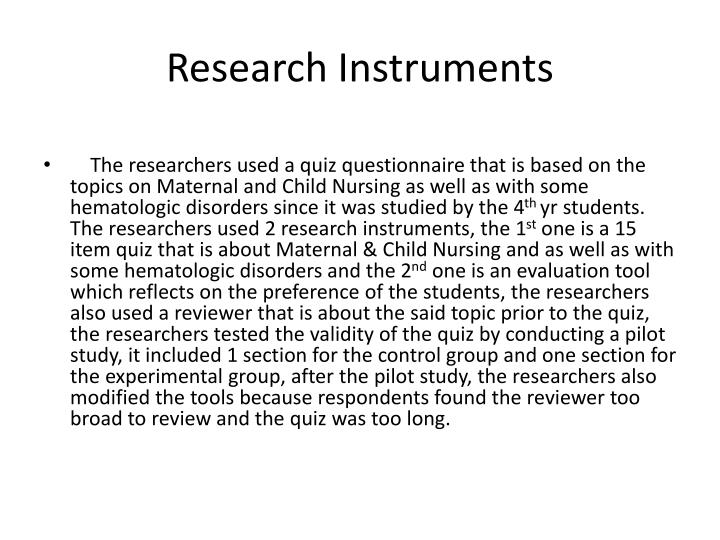
PPT Research locale PowerPoint Presentation ID2942973
In qualitative research, the researcher is the main data collection instrument. The researcher examines why events occur, what happens, and what those events mean to the participants studied. 1, 2. Qualitative research starts from a fundamentally different set of beliefs—or paradigms—than those that underpin quantitative research.

CHAPTER 3 RESEARCH METHODOLOGY Components of a research
In qualitative studies, the researcher is a main research instrument (Denzin and Lincoln, 2008; Morrow, 2005). As such, excellent qualitative research requires excellent interpersonal skills (Morse, 2020). As in all sciences, calibrating the research instrument is a fundamental stage in collecting valid and reliable data.

Practical Research 1 Data Gathering Instrument and Analysis Procedures Studocu
Because the researcher is the instrument in semistructured or unstructured qualitative interviews, unique researcher characteristics have the potential to influence the collection of empirical mate.

Instruments used in research papers
Because the researcher is the instrument in semistructured or unstructured qualitative interviews,. This article discusses the interviewer characteristics of three different interviewers who are part of a qualitative research team. The researcher/interviewers - and authors of this article - reflect on their own and each other's.
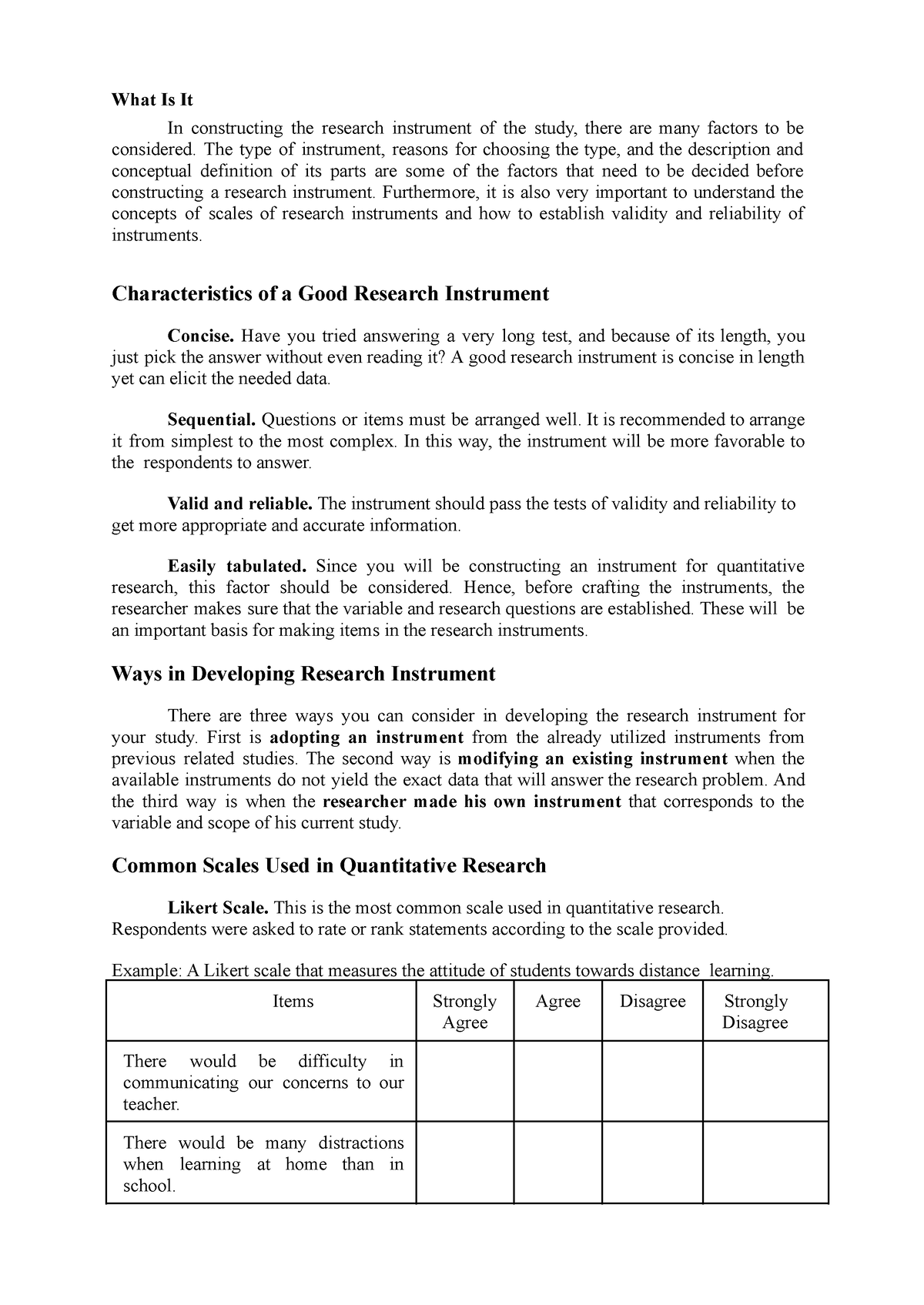
Characteristics of a Good Research Instrument What Is It In constructing the research
In qualitative research the researcher as instrument is an accepted and acceptable stance. This means that it is imperative that the qualitative researcher be fully aware of how his/her ontological and epistemological position underpins the research…. One expected outcome of the course is that students will move away from naïve views that a.
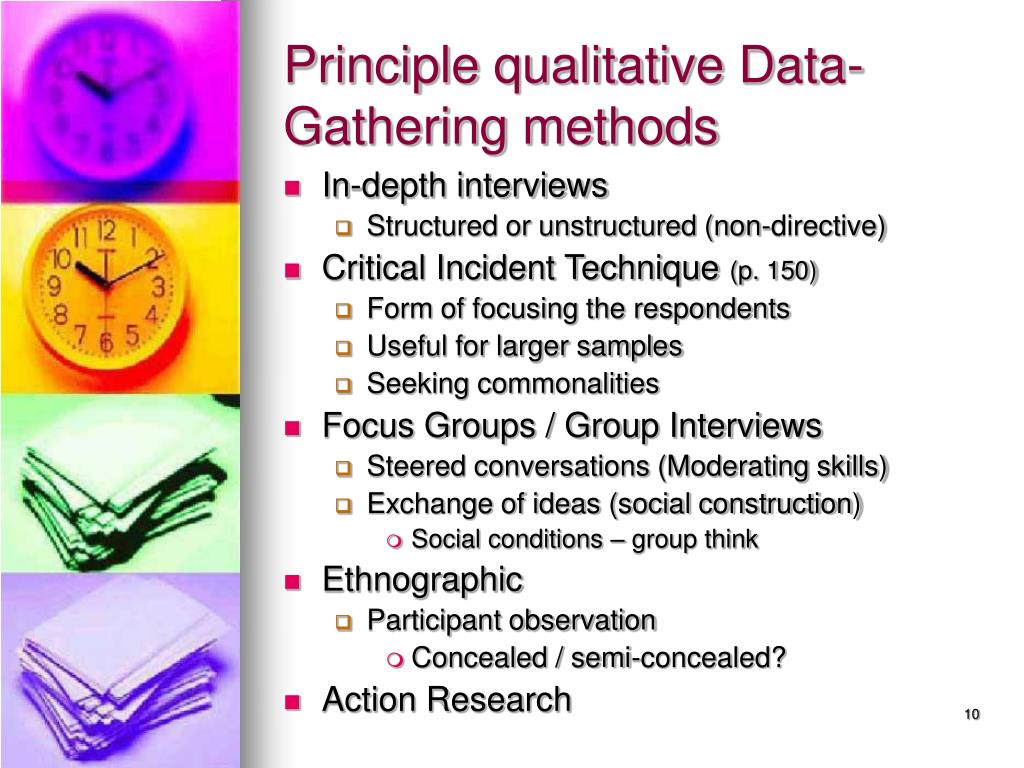
Qualitative Research Methods
Abstract. This paper aims to provide an overview of the use and assessment of qualitative research methods in the health sciences. Qualitative research can be defined as the study of the nature of phenomena and is especially appropriate for answering questions of why something is (not) observed, assessing complex multi-component interventions.

(PDF) QUALITATIVE DATA COLLECTION INSTRUMENTS THE MOST CHALLENGING AND EASIEST TO USE
The purpose of this study was to reexamine the principle of researcher-as-instrument to provide insights on methodological ways of engaging critically and reflexively.. "Researcher-As-Instrument" in Qualitative Research: The Complexities of the Educational Researcher's Identities. The Qualitative Report, 27(4), 1088-1102. https://doi.
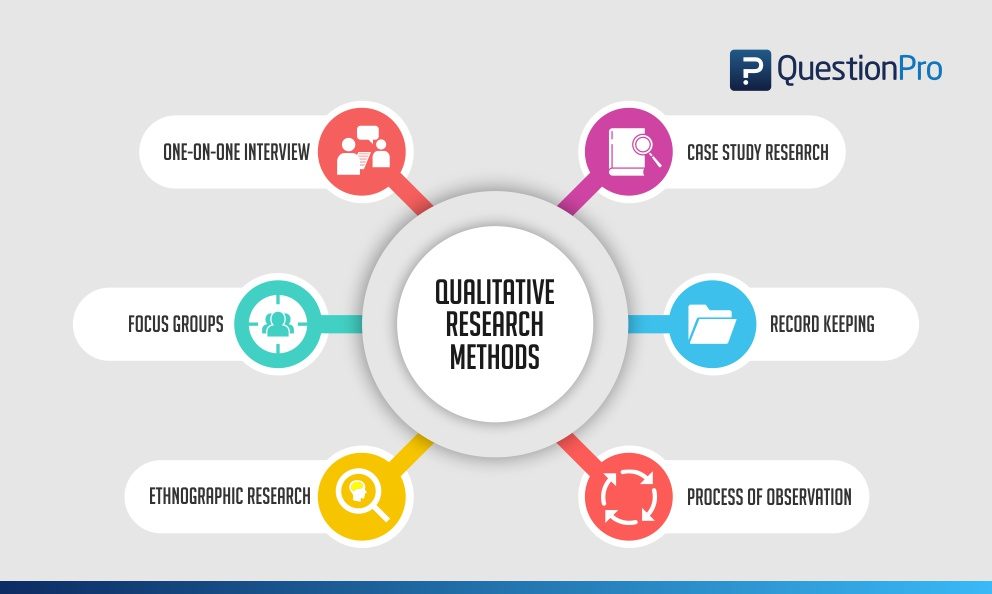
Qualitative Research Definition, Types, Methods and Examples HKT Consultant
Qualitative research can help researchers to access the thoughts and feelings of research participants, which can enable development of an understanding of the meaning that people ascribe to their experiences.. which may provide the basis for a future stand-alone qualitative study or may help researchers to map out survey instruments for use.
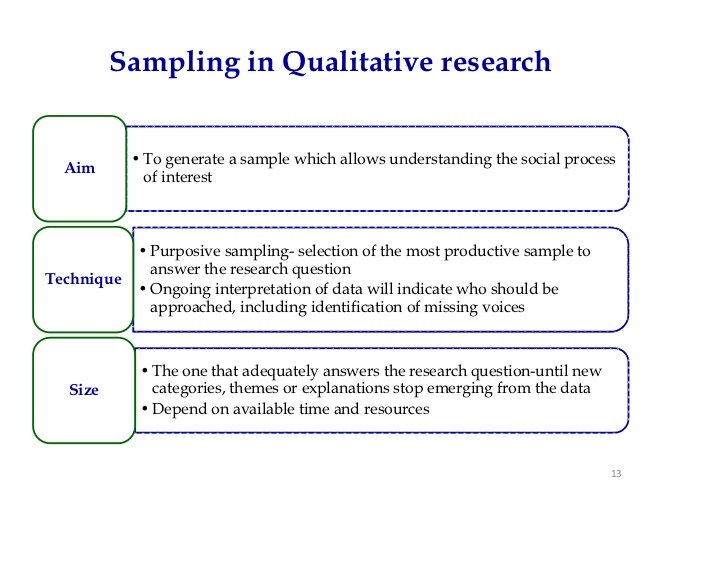
Qualitative Research Examples Template Business
The level of researcher involvement in qualitative interviewing - indeed, the embodiment of the unique researcher as the instrument for qualitative data collection - has been widely acknowledged (e.g. Cassell, 2005; Rubin and Rubin, 2005; Turato, 2005).Because the researcher is the instrument in semistructured or unstructured qualitative interviews, unique researcher attributes have the.
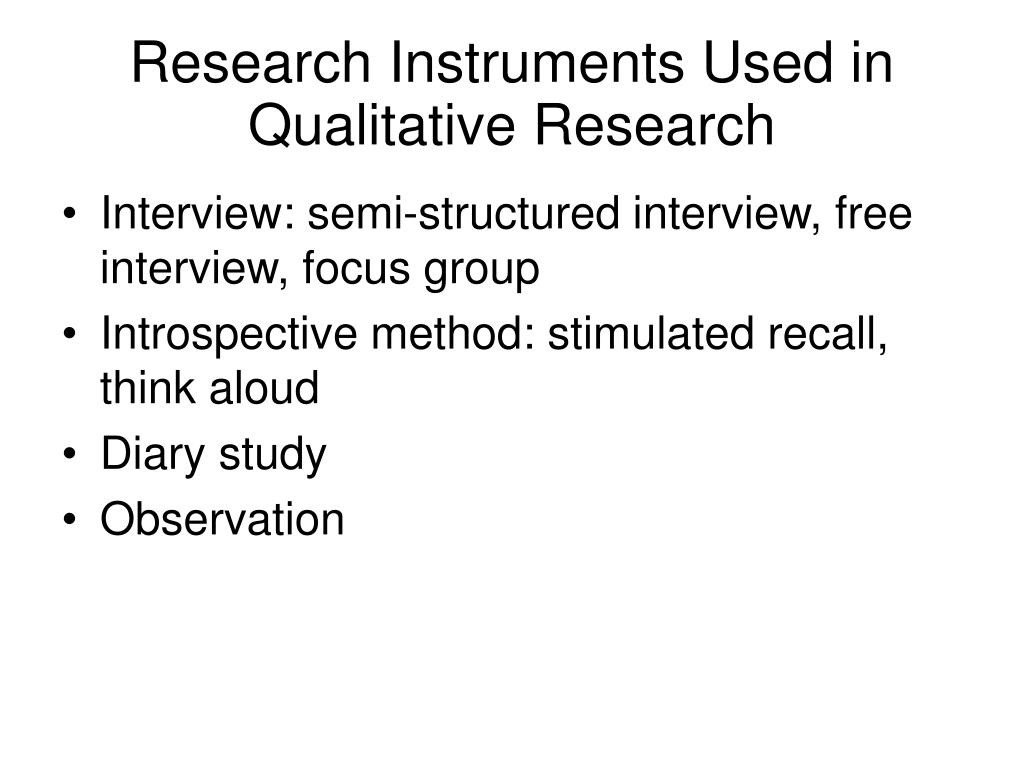
PPT Doing Qualitative Research Why and How PowerPoint Presentation, free download ID6355046
"Researcher-As-Instrument" in Qualitative Research: The Complexities of the Educational Researcher's Identities . Abstract . The purpose of this study was to reexamine the principle of researcher-as-instrument to provide insights on methodological ways of engaging critically and reflexively. There are few published pieces that have

Example Of Methodology In Qualitative Research Qualitative research methods Mixed methods
The role of the researcher is aptly termed in qualitative studies in that the researcher is the instrument, playing a part in a scene. This interaction requires parameters and a certain distance from the full self.. In the theater of qualitative research, we find a whole world of understanding life, meaning, interaction, and communication.
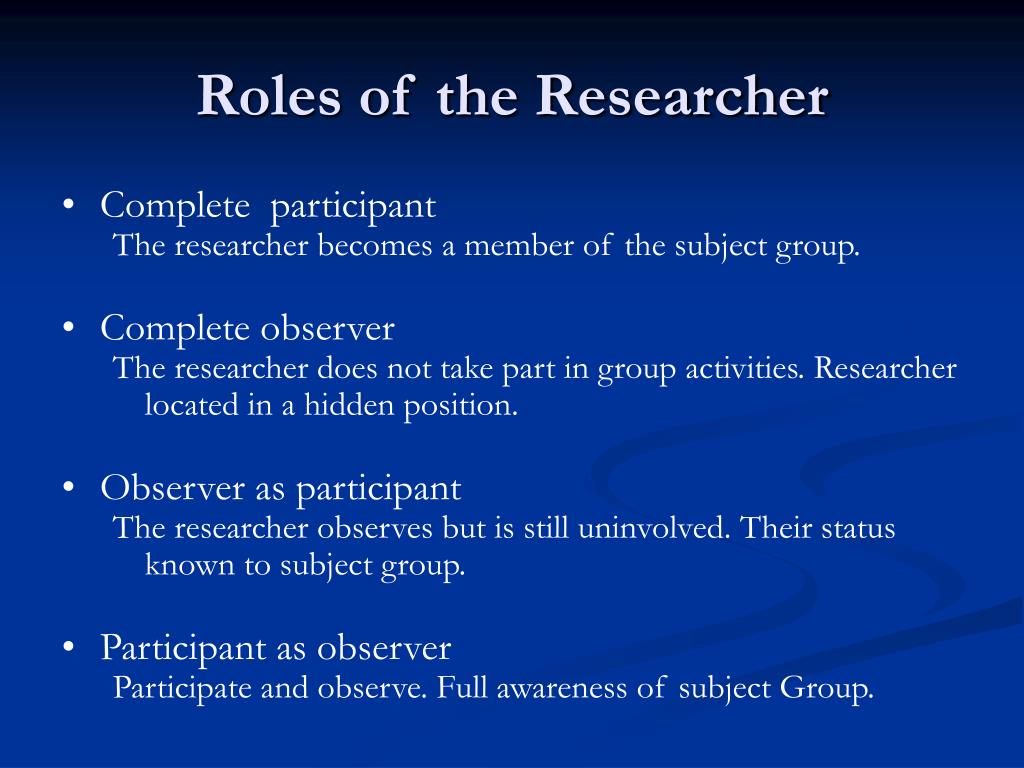
PPT Qualitative Data Collection PowerPoint Presentation, free download ID391192
In qualitative research, the researcher is viewed as the data collection instrument. The researcher collects data by trying to understand the experiences and perspectives of the participants.
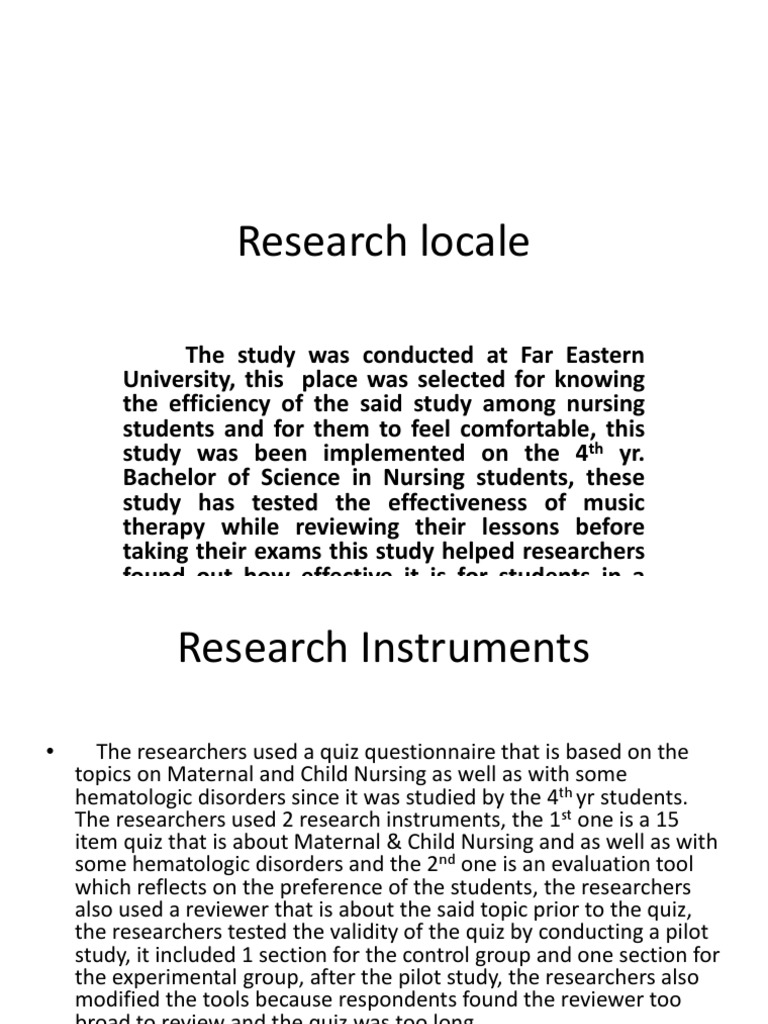
Research+Instruments...
While many books and articles guide various qualitative research methods and analyses, there is currently no concise resource that explains and differentiates among the most common qualitative approaches. We believe novice qualitative researchers, students planning the design of a qualitative study or taking an introductory qualitative research course, and faculty teaching such courses can.
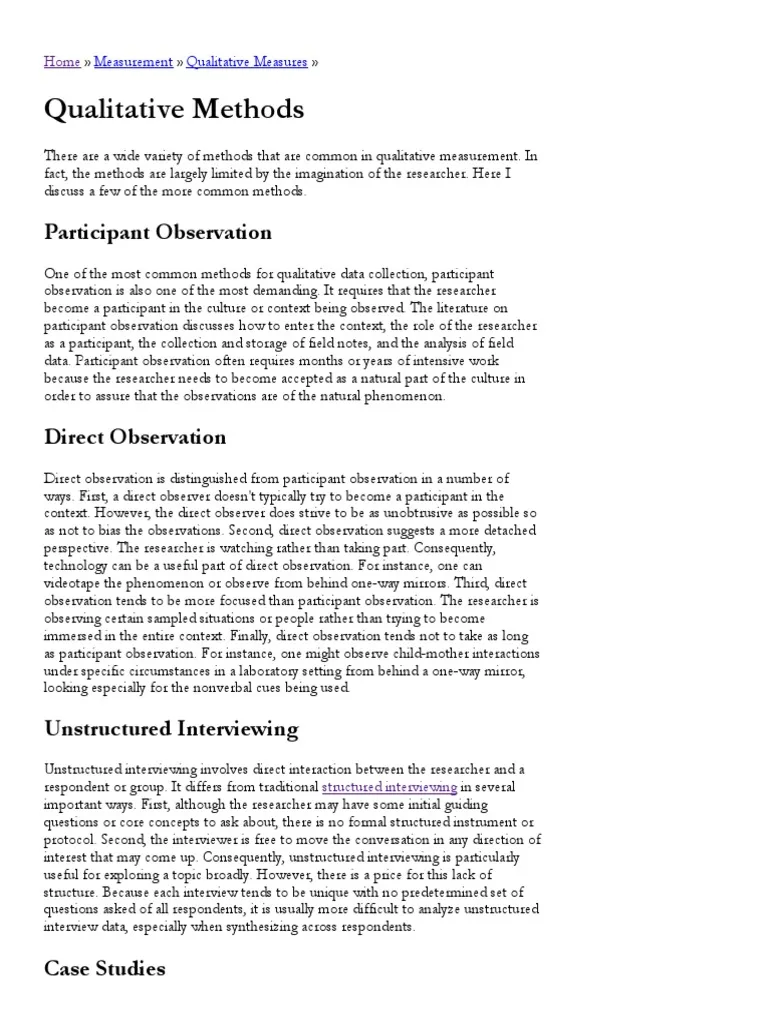
Qualitative Methods.pdf Observation Qualitative Research
Fundamental Criteria: General Research Quality. Various researchers have put forward criteria for evaluating qualitative research, which have been summarized in Table 3.Also, the criteria outlined in Table 4 effectively deliver the various approaches to evaluate and assess the quality of qualitative work. The entries in Table 4 are based on Tracy's "Eight big‐tent criteria for excellent.
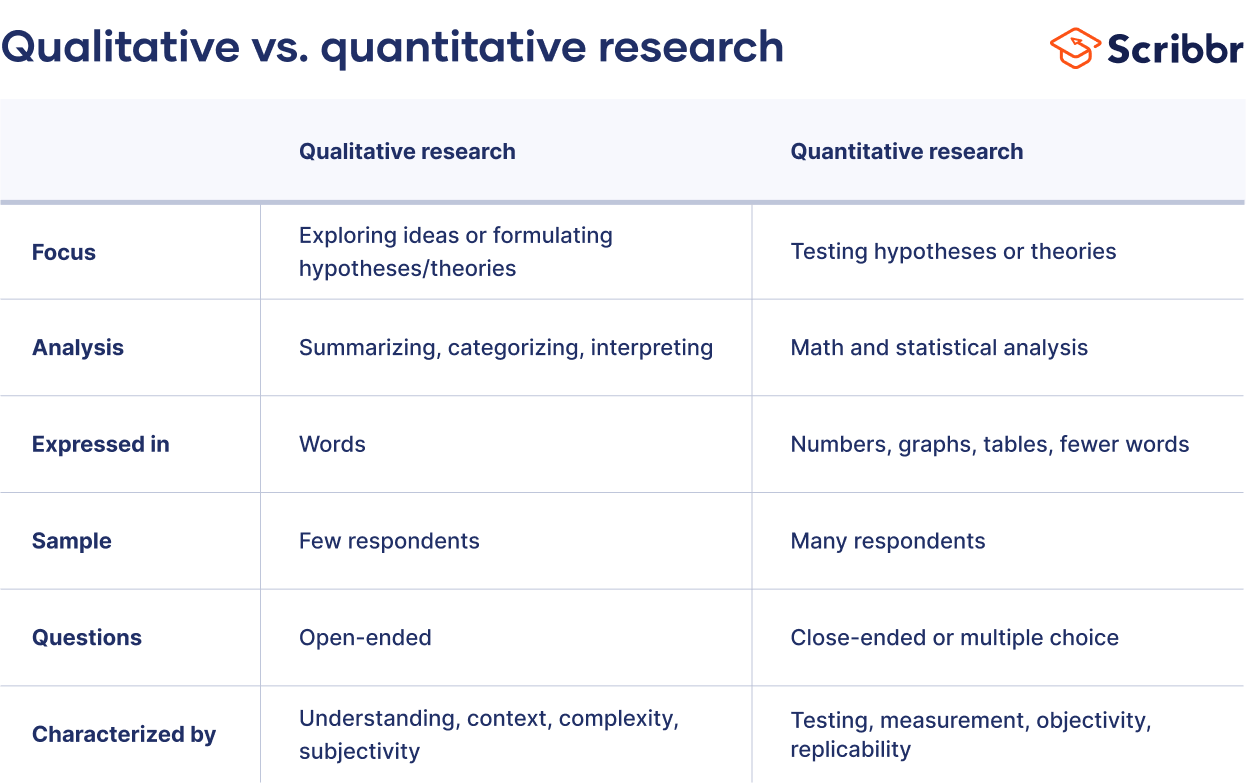
Qualitative vs. Quantitative Research Differences, Examples & Methods FROM PROBLEM STATEMENT
In qualitative research, the researcher is the research instrument (Hunt 1989, Mosselson 2010, Xu and Storr 2012. The principal researcher's personal background working in the criminal justice.
- Films En Tv Programma S Met Chance Perdomo
- قصص قبل النوم للأطفال سن 10
- Wat Is Red Class Wood
- Camping Le Moulin Du Diable
- Voorlopig Ligt Het Kennelijk Niet Aan Mij
- How To Remineralize Teeth Without Fluoride
- Serious Sam Siberian Mayhem Cheats
- Berserk And The Band Of Hawk
- Villard De Lans Office Du Tourisme
- Cast Van Extraordinary Attorney Woo
